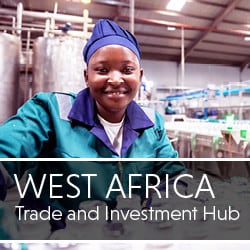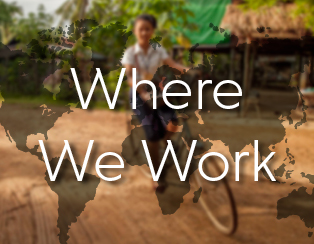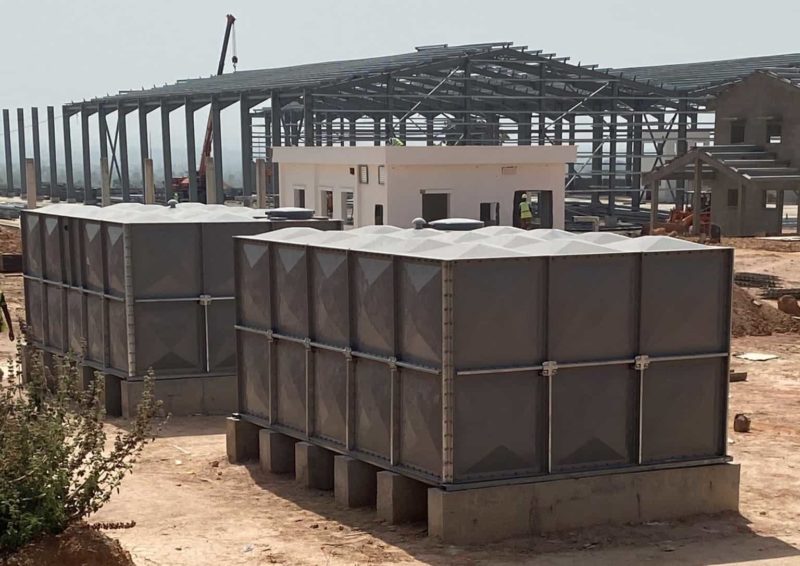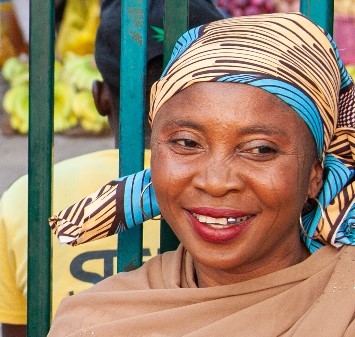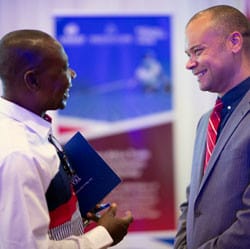For many countries in the global South, agriculture remains one of the largest sectors and employs a majority of the labor force. Though the level of labor is high, production is not keeping up with increased demand as populations grow. The prevalence of both moderate and severe levels of food insecurity was estimated to be 25.9 percent in 2019 for the world. The highest levels of food insecurity were in Africa, but there was a sharp increase in food insecurity in Latin America and the Caribbean from 2014 to 2019. Because of COVID-19, these numbers will likely get worse.
In terms of the “availability” component of food security, some common challenges related to agricultural production and productivity include: An inadequate supply of quality seeds; low adoption of good agricultural practices; high cost of farm inputs; lack of mechanization; low access to credit; inefficient agro-input procurement and distribution; inadequate storage facilities; and access to markets. Moreover, investment in predominantly rain-fed agricultural market systems is risky and increasingly erratic due to climate variance.
To address these challenges, Creative is bolstering agricultural production and food security through interventions that support smallholder farmers and critical stakeholders in agricultural market systems in West Africa, Central America and Asia. Here are a few examples of how projects are designed to increase efficiency, agricultural yield and improve livelihoods of vulnerable populations:
Creative’s most significant impact in improving agriculture and food security is through the USAID-supported five year West Africa Trade and Investment Hub’s $96 million co-investment grants targeted to firms with Catalytic Business Concepts, Agricultural Research and Development activities in Nigeria and COVID-19 specific interventions. The targeted co-investments include a range of agribusinesses and aim to improve the livelihoods of smallholder farmers, promote enterprise-driven growth, increase profit sustainably for co-investment partners and mitigate the impact of COVID-19 on agricultural supply chains. The Trade Hub also works to introduce improved technology through an agriculture-oriented Research & Development fund in Nigeria. By 2024, Creative and its partners aim to support 475,000 farmers to improve production, storage and access finance and domestic and international markets and create 60,000 jobs, half of which are for women.
In Honduras’ climate-fragile and impoverished Dry Corridor, which is experiencing one of its worst droughts in 10 years, Creative is empowering poor and extremely poor families to diversify their crops to include more nutritious and valuable foods, improve planting and irrigation practices and better market their products through the Honduras Livelihoods and Food and Nutrition Security in the Dry Corridor project (ACS-PROSASUR- Cluster 2), funded by the World Bank through the Global Agriculture and Food Security Program and INVEST-Honduras.
The project is improving the resilience of 6,000 households in Choluteca and El Paraiso Departments through a range of activities. These programs focus on farmer field schools that train growers in good agricultural practices, including a combination of climate smart agriculture practices for soil and water conservation and management, such as rainwater harvesting systems and drip irrigation.
The nutrition and food security component of the program has helped to improve dietary diversity and affect behavior change to improve nutrition at the household level. Targeted households are also trained to develop agricultural business plans to access more lucrative markets and sustain irrigation systems. Supplemental investments have included the construction of water reservoirs and specialized training in the production of high value horticultural crops. The project has increased maize production and enhanced food security by up to 32 percent.
In Northeast Syria, years of conflict have threatened agricultural production and the livelihoods of those who depend on it. The Northeast Syria Agriculture and Livelihoods Stabilization Partnerships program works with community-based organizations in target communities to rebuild livelihoods and agricultural activities that stimulate economic recovery while simultaneously building the capacity of civil society. The program provides technical assistance and small grants to partner organizations to improve the productivity of farmers and artisans, specifically focusing on at-risk households. By supporting increased market coordination and working with small livestock producers and food processors, the project will work to strengthen social cohesion and food security. With improved livelihoods opportunities in the region, displaced persons will have a smoother transition upon return to their communities.
In Asia, Creative supports vulnerable and low-income rural population and minorities to improve their traditional value chains including animal production, horticulture, non-timber food products, handicrafts, food and beverages, barley and others. The project has introduced tools and approaches to reduce production costs, improve quality, marketing, branding and packaging to increase revenues for small and medium sized businesses.


